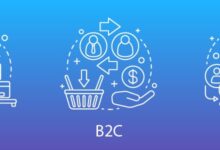B2B Examples: 7 Powerful Real-World Success Stories You Need to See
Ever wondered how companies sell to other companies? Let’s dive into real, impactful B2B examples that reveal the strategies, relationships, and innovations driving today’s global markets.
B2B Examples: Understanding the Core of Business-to-Business Transactions

Before we explore specific cases, it’s essential to understand what B2B truly means. Business-to-business (B2B) refers to transactions between companies, such as a manufacturer selling to a wholesaler or a software provider licensing tools to another enterprise. Unlike B2C (business-to-consumer), B2B relationships are often long-term, involve larger transaction values, and rely heavily on trust, contracts, and data-driven decision-making.
What Defines a Strong B2B Model?
A successful B2B operation isn’t just about selling products—it’s about solving problems, improving efficiency, and creating measurable value for other businesses. Key characteristics include:
- Long sales cycles with multiple stakeholders
- Customized pricing and service models
- Emphasis on ROI and performance metrics
- Relationship-driven marketing and sales
- Complex decision-making processes
“B2B is not just about transactions; it’s about partnerships that scale businesses.” — Forbes Insights, 2023
Why Studying B2B Examples Matters
Real-world B2B examples provide actionable insights. They show how companies navigate supply chains, adopt new technologies, and build ecosystems. By analyzing these cases, startups and enterprises alike can refine their strategies, avoid common pitfalls, and identify growth opportunities. Whether you’re in SaaS, manufacturing, or logistics, learning from proven models is critical.
7 Key B2B Examples That Transformed Industries
Let’s explore seven powerful B2B examples that not only defined their sectors but also set new standards for innovation, scalability, and customer success. These aren’t just stories—they’re blueprints for success.
1. Salesforce: Revolutionizing CRM with Cloud-Based B2B SaaS
Salesforce is one of the most iconic B2B examples in the software-as-a-service (SaaS) space. Founded in 1999, it disrupted the traditional CRM market by offering a cloud-based platform that eliminated the need for on-premise installations.
What made Salesforce stand out was its focus on scalability, integration, and customer success. Instead of selling software licenses, it offered subscription-based access, making it easier for businesses of all sizes to adopt advanced CRM tools.
Today, Salesforce powers over 150,000 companies worldwide, including giants like Amazon and Toyota. Its AppExchange ecosystem allows third-party developers to build and sell integrations, further expanding its B2B reach. Learn more about Salesforce’s platform.
2. Amazon Business: Scaling B2B E-Commerce Like Never Before
While Amazon is known for B2C, its Amazon Business arm is a game-changer in B2B e-commerce. Launched in 2015, Amazon Business serves over 5 million businesses globally, offering everything from office supplies to industrial equipment.
What sets it apart? Seamless integration with procurement systems, business-only pricing, tax-exempt shopping, and detailed reporting tools. Companies like General Electric and Unilever use Amazon Business to streamline purchasing and reduce operational costs.
By leveraging its existing logistics network and data analytics, Amazon Business has become one of the fastest-growing B2B platforms. Explore Amazon Business offerings.
3. HubSpot: Inbound Marketing as a B2B Growth Engine
HubSpot is a textbook example of how inbound marketing can fuel B2B growth. Instead of aggressive sales tactics, HubSpot built its brand by offering free tools, educational content, and certifications that attracted businesses looking to improve their marketing strategies.
Their freemium model allowed small and mid-sized companies to experience value before committing financially. Over time, HubSpot expanded into sales, service, and CRM platforms, creating a full-suite solution for B2B growth.
b2b examples – B2b examples menjadi aspek penting yang dibahas di sini.
With over 200,000 customers in 120+ countries, HubSpot proves that content-driven strategies work in B2B. Visit HubSpot’s resource library.
4. Slack: Redefining Internal Communication for Enterprises
Slack started as a small team collaboration tool but quickly became a B2B powerhouse by solving a universal pain point: workplace communication chaos. Its intuitive interface, app integrations, and channel-based structure made it ideal for enterprise adoption.
Slack’s go-to-market strategy focused on bottom-up adoption—teams would start using it informally, then scale across departments. This organic growth led to enterprise-wide contracts with companies like IBM, Target, and NASA.
In 2020, Salesforce acquired Slack for $27.7 billion, signaling the strategic importance of communication tools in the B2B ecosystem. Discover how Slack powers teams.
5. Siemens: Industrial B2B Innovation Through Digital Twins
Siemens is a leader in industrial automation and digital transformation. One of its most compelling B2B examples is the use of digital twin technology—virtual replicas of physical systems used to simulate, analyze, and optimize performance.
Manufacturers like BMW and Airbus use Siemens’ digital twin solutions to test production lines, reduce downtime, and accelerate product development. This B2B service doesn’t just sell hardware; it delivers predictive insights and operational intelligence.
Siemens’ MindSphere platform connects machines, data, and people, enabling smarter factories. Their shift from product-centric to solution-centric offerings exemplifies modern B2B evolution. Explore Siemens’ digital solutions.
6. Shopify Plus: Empowering Enterprise B2B Commerce
While Shopify is often associated with small online stores, Shopify Plus has emerged as a major player in enterprise B2B commerce. Brands like Heinz, Gymshark, and Unilever use Shopify Plus to manage complex B2B storefronts with custom catalogs, bulk ordering, and tiered pricing.
Shopify’s API-first architecture allows seamless integration with ERP, CRM, and inventory systems, making it ideal for large-scale B2B operations. Its headless commerce capabilities enable businesses to deliver personalized experiences across channels.
By democratizing enterprise-grade tools, Shopify Plus is reshaping how B2B companies approach digital sales. Learn about Shopify Plus for B2B.
7. Zoom: From Video Conferencing to Full B2B Collaboration Suite
Zoom’s rise during the pandemic was meteoric, but its B2B success was built on years of strategic development. Initially a simple video conferencing tool, Zoom evolved into a comprehensive communication platform used by enterprises like Zoom, Ford, and the U.S. Department of Defense.
Its reliability, ease of use, and robust security features made it a top choice for remote teams. Zoom also integrated with B2B tools like Slack, Salesforce, and Google Workspace, embedding itself into daily workflows.
Today, Zoom offers contact center solutions, webinar platforms, and AI-powered meeting assistants—proving that even simple tools can scale into enterprise-grade B2B products. See Zoom’s enterprise features.
b2b examples – B2b examples menjadi aspek penting yang dibahas di sini.
B2B Examples in Manufacturing: Supply Chain and Industrial Partnerships
The manufacturing sector is rich with B2B examples where suppliers, OEMs, and logistics providers collaborate to deliver finished goods. These relationships are often long-term, contract-based, and highly interdependent.
Caterpillar and Komatsu: Heavy Machinery Supply Networks
Caterpillar Inc. is a global leader in construction and mining equipment. Its B2B model relies on a vast network of dealers, distributors, and service providers. These partners don’t just sell machines—they offer financing, maintenance, and training.
Similarly, Komatsu operates a B2B ecosystem where technology, parts, and services are bundled into long-term support agreements. Both companies use IoT sensors in their equipment to provide predictive maintenance alerts, enhancing customer value.
This shift from selling products to delivering outcomes is a hallmark of modern B2B manufacturing. Explore Caterpillar’s dealer network.
Intel and Dell: Chipmakers Powering Tech Giants
Intel supplies processors to major PC manufacturers like Dell, HP, and Lenovo. This B2B relationship is foundational to the tech industry. Without semiconductor companies, hardware innovation stalls.
Intel doesn’t just sell chips—it co-designs them with OEMs to meet specific performance, power, and thermal requirements. This deep collaboration ensures that Dell laptops, for example, meet enterprise standards for durability and efficiency.
Such partnerships highlight how B2B relationships drive technological advancement across industries. Learn about Intel’s OEM solutions.
B2B Examples in Technology: SaaS, Cloud, and Cybersecurity
The tech sector is perhaps the most dynamic area for B2B examples today. From cloud infrastructure to AI-powered analytics, technology companies are enabling digital transformation across sectors.
Microsoft Azure: Cloud Infrastructure for Enterprises
Microsoft Azure is one of the leading cloud platforms, competing directly with AWS and Google Cloud. It provides B2B services like virtual machines, databases, AI tools, and hybrid cloud solutions.
Enterprises like BMW, Walmart, and Adobe rely on Azure for scalable computing power, data storage, and application hosting. Azure’s integration with Microsoft 365 and Active Directory makes it especially attractive for organizations already using Microsoft products.
Its pay-as-you-go model and global data centers allow businesses to scale without heavy upfront investment. Discover Microsoft Azure.
Okta: Identity Management as a B2B Service
In an era of remote work and cloud apps, identity and access management (IAM) is critical. Okta provides secure single sign-on (SSO) and multi-factor authentication (MFA) for thousands of B2B customers.
Companies like Zoom, Airbnb, and T-Mobile use Okta to manage employee access across hundreds of applications. This reduces security risks and simplifies IT administration.
b2b examples – B2b examples menjadi aspek penting yang dibahas di sini.
Okta’s API-first approach allows easy integration with existing HR and IT systems, making it a scalable B2B solution. Explore Okta’s identity solutions.
B2B Examples in Logistics and Supply Chain
Efficient logistics are the backbone of global commerce. B2B logistics companies enable everything from raw material transport to last-mile delivery for businesses.
UPS and FedEx: Enabling E-Commerce and B2B Shipments
UPS and FedEx are not just delivery services—they’re full-scale B2B logistics providers. They offer warehousing, freight forwarding, customs brokerage, and supply chain consulting.
For example, UPS works with pharmaceutical companies to ensure temperature-controlled shipping of vaccines. FedEx partners with retailers to manage inventory across distribution centers.
Their advanced tracking systems and analytics platforms help businesses optimize delivery routes, reduce costs, and improve customer satisfaction. Learn about UPS B2B solutions.
DHL Supply Chain: End-to-End Logistics for Global Brands
DHL is a leader in B2B logistics, serving industries from automotive to healthcare. It manages everything from inbound procurement to outbound distribution for clients like BMW, Siemens, and Nestlé.
DHL uses automation, robotics, and AI to optimize warehouse operations. Its visibility tools allow clients to track shipments in real time, improving supply chain transparency.
This level of integration shows how B2B logistics has evolved from simple shipping to strategic partnership. Explore DHL’s supply chain services.
B2B Examples in Professional Services and Consulting
Professional services firms play a crucial role in B2B ecosystems by providing expertise in finance, legal, HR, and strategy.
Deloitte: Advisory and Consulting for Global Enterprises
Deloitte is one of the Big Four accounting firms, offering audit, tax, consulting, and advisory services to Fortune 500 companies. Its B2B model is based on trust, deep industry knowledge, and data-driven insights.
Deloitte helps businesses navigate digital transformation, mergers and acquisitions, and regulatory compliance. Its consulting arm develops custom strategies for clients in sectors like healthcare, energy, and financial services.
With over 410,000 professionals worldwide, Deloitte exemplifies how human capital and intellectual property drive B2B value. Visit Deloitte’s insights hub.
McKinsey & Company: Strategic Decision-Making for Corporations
McKinsey is synonymous with high-level corporate strategy. It advises CEOs and government leaders on growth, innovation, and operational efficiency.
b2b examples – B2b examples menjadi aspek penting yang dibahas di sini.
While its services are expensive, the ROI for clients can be massive. For example, McKinsey helped a major retailer restructure its supply chain, saving $1 billion annually.
Their research publications and thought leadership also serve as marketing tools, attracting new B2B clients seeking expert guidance. Read McKinsey’s latest reports.
B2B Examples in Marketing and Advertising
Marketing agencies and ad tech platforms are essential B2B players that help companies reach their target audiences.
Google Ads and Meta for Business: Digital Advertising Platforms
While Google and Meta (Facebook) serve consumers, their advertising platforms are primarily B2B tools. Businesses use Google Ads to target search queries, and Meta Ads to reach users on Facebook and Instagram.
These platforms provide detailed analytics, audience segmentation, and automated bidding—enabling precise ROI measurement. Small businesses and global brands alike rely on them for customer acquisition.
Google’s B2B sales team also works directly with large advertisers to optimize campaigns and integrate with CRM systems. Get started with Google Ads.
Hootsuite: Social Media Management for Teams
Hootsuite is a B2B example of a SaaS platform that simplifies social media management. It allows marketing teams to schedule posts, monitor engagement, and analyze performance across multiple networks.
Enterprises like Adobe and Spotify use Hootsuite to maintain consistent brand presence and respond to customer inquiries efficiently.
Its collaboration features, approval workflows, and reporting dashboards make it ideal for B2B marketing teams. Try Hootsuite for your business.
Emerging Trends in B2B Examples: AI, Automation, and Sustainability
The future of B2B is being shaped by technological innovation and changing market expectations. Let’s look at how new trends are influencing B2B examples today.
AI-Powered Sales and Customer Support
Artificial intelligence is transforming B2B sales cycles. Tools like Gong and Chorus record and analyze sales calls to improve performance. AI chatbots handle initial customer inquiries, freeing up human agents for complex tasks.
Companies like Salesforce and HubSpot now offer AI-driven insights for lead scoring, forecasting, and content recommendations—making B2B sales more efficient and data-driven.
Automation in Procurement and Finance
B2B procurement is becoming increasingly automated. Platforms like Coupa and Ariba streamline purchasing, invoicing, and payment processes. This reduces errors, speeds up approvals, and improves cash flow.
b2b examples – B2b examples menjadi aspek penting yang dibahas di sini.
Robotic Process Automation (RPA) is also being used to handle repetitive tasks like data entry and contract management, allowing finance teams to focus on strategic initiatives.
Sustainability as a B2B Differentiator
More businesses are prioritizing sustainability in their B2B partnerships. Companies like Patagonia and Unilever require suppliers to meet environmental and ethical standards.
Platforms like EcoVadis assess supplier sustainability performance, helping enterprises build greener supply chains. This trend shows that B2B value now includes social and environmental impact.
What are B2B examples?
B2B examples are real-world cases where one business provides products or services to another. These include software platforms like Salesforce, logistics providers like DHL, and consulting firms like Deloitte. They illustrate how companies collaborate to drive efficiency, innovation, and growth.
How do B2B companies make money?
B2B companies generate revenue through subscriptions, licensing fees, long-term contracts, and service-based models. For example, SaaS companies charge monthly fees, while manufacturers sell bulk orders. Revenue often depends on customer lifetime value and contract renewals.
What is the difference between B2B and B2C?
B2B (business-to-business) involves transactions between companies, with longer sales cycles and higher order values. B2C (business-to-consumer) targets individual customers with faster decisions and emotional appeals. B2B focuses on ROI, efficiency, and logic, while B2C emphasizes branding and convenience.
Which industries have the most B2B activity?
Industries with high B2B activity include technology, manufacturing, healthcare, logistics, professional services, and industrial equipment. These sectors rely heavily on supply chains, software tools, and expert services to operate.
Can small businesses succeed in B2B?
Absolutely. Many small businesses thrive in B2B by offering niche solutions, specialized services, or regional expertise. Platforms like Shopify, HubSpot, and Zoom have lowered entry barriers, allowing startups to compete with larger players through digital tools and inbound marketing.
b2b examples – B2b examples menjadi aspek penting yang dibahas di sini.
From software giants like Salesforce to industrial leaders like Siemens, these B2B examples reveal a common thread: success comes from solving real business problems with scalable, reliable, and innovative solutions. Whether through technology, logistics, or human expertise, B2B relationships are the engine of global commerce. By studying these cases, businesses can learn how to build stronger partnerships, adopt new technologies, and create lasting value in an ever-evolving marketplace.
Further Reading:








